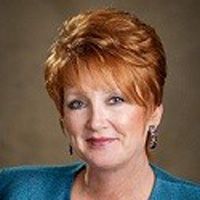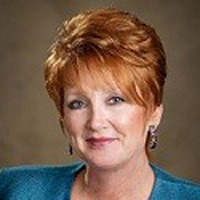Making the Most of Your 401(k) by Using Your Own Adviser
Don’t want to rely on your employer’s investment choices? A self-directed 401(k) account could help you maximize your retirement savings, and working with a professional adviser could give you the personalized attention you need.


Profit and prosper with the best of Kiplinger's advice on investing, taxes, retirement, personal finance and much more. Delivered daily. Enter your email in the box and click Sign Me Up.
You are now subscribed
Your newsletter sign-up was successful
Want to add more newsletters?

Delivered daily
Kiplinger Today
Profit and prosper with the best of Kiplinger's advice on investing, taxes, retirement, personal finance and much more delivered daily. Smart money moves start here.

Sent five days a week
Kiplinger A Step Ahead
Get practical help to make better financial decisions in your everyday life, from spending to savings on top deals.

Delivered daily
Kiplinger Closing Bell
Get today's biggest financial and investing headlines delivered to your inbox every day the U.S. stock market is open.

Sent twice a week
Kiplinger Adviser Intel
Financial pros across the country share best practices and fresh tactics to preserve and grow your wealth.

Delivered weekly
Kiplinger Tax Tips
Trim your federal and state tax bills with practical tax-planning and tax-cutting strategies.

Sent twice a week
Kiplinger Retirement Tips
Your twice-a-week guide to planning and enjoying a financially secure and richly rewarding retirement

Sent bimonthly.
Kiplinger Adviser Angle
Insights for advisers, wealth managers and other financial professionals.

Sent twice a week
Kiplinger Investing Weekly
Your twice-a-week roundup of promising stocks, funds, companies and industries you should consider, ones you should avoid, and why.

Sent weekly for six weeks
Kiplinger Invest for Retirement
Your step-by-step six-part series on how to invest for retirement, from devising a successful strategy to exactly which investments to choose.
We have ended up in a world where employees have to find ways to manage their own funds for retirement, at their own risk. Fortunately, many plans have begun to offer an option called a self-directed brokerage account (SDBA). Some plans even allow you to hire your own adviser to manage your account. And, with the help of a professional adviser, you can put yourself in an ideal position to optimize your retirement plan and meet your overall financial goals.
This self-directed brokerage account (SDBA) option gives you access to a broader universe of investments, such as individual stocks and bonds, exchange-traded funds, and many other mutual fund options — depending on your company’s restrictions. However, while you may want the advantage of those additional investment choices, you may not be comfortable with making all your own decisions, particularly since the investment risk is on you. Fortunately, a professional investment adviser can help you manage your self-directed 401(k) brokerage account.
Is using an adviser for your self-directed 401(k) worth the cost?
What many workers don’t realize is that most are already paying management fees for their company’s 401(k), without getting personalized guidance. Many employer 401(k) plans are managed by registered investment advisers, who act as fiduciaries to the plan and select the investment options for the plan, as a whole. Their obligation is to the plan sponsor — meaning your employer, not you — and they cannot manage or advise individual participants.
From just $107.88 $24.99 for Kiplinger Personal Finance
Become a smarter, better informed investor. Subscribe from just $107.88 $24.99, plus get up to 4 Special Issues

Sign up for Kiplinger’s Free Newsletters
Profit and prosper with the best of expert advice on investing, taxes, retirement, personal finance and more - straight to your e-mail.
Profit and prosper with the best of expert advice - straight to your e-mail.
Using your own personal adviser for a self-directed 401(k) brokerage account may present more value than you think. Given that 401(k) fees can sometimes be rather substantial, according to Business Insider, and given that they can have a significant impact on your account's ultimate value, it is worth considering alternatives.
According to a groundbreaking study by Vanguard, using a professional adviser can possibly add about net 3% annually to the value of your assets, after fees are taken into account. In addition, the adviser can develop a plan for the self-directed account that is part of your overall financial plan to specifically tailor strategies to your personal needs and goals.
Having your own adviser means access to broader advice
Using an adviser for a self-directed 401(k) brokerage account can present more advantages than just increased performance and potentially lower fees. Selecting an adviser who will plan for and manage your overall financial strategy will lead to a coordinated plan that has all the assets working toward all of your goals, not just a single retirement account. For example, many investors have multiple investment accounts in different places, and an adviser can take a comprehensive look at all of them to see how those can fit into the investment mix to achieve the desired outcome. Most are invested without consideration to the whole picture; more of a piecemeal situation. An adviser can also advise on Social Security strategies and how to integrate other retirement income into the complete picture.
An adviser is likely to cost annually between 0.5% and 1% of the assets under management, but that may be less than the average fees you pay on plan investments — which include both the fees an employer’s registered investment adviser would charge and the fees that the mutual funds themselves charge — and the adviser’s fee covers much broader services. The adviser can help find ways to take the most advantage of the 401(k) plan (such as matches by employers) while not losing sight of your near-term goals. As you age and earn more, your goals and objectives will change, and your adviser can help manage these life changes.
Personal attention means a closer eye on your risk tolerance
Investor risk tolerance ranges from aggressive to moderate to conservative, and failing to understand where you fall on that continuum can be disastrous. A professional adviser will almost invariably begin a client relationship with some sort of risk analysis, both to assist them in understanding you and to structure your investments within that risk framework. Many portfolios are concentrated in company stock and not adequately diversified. Additionally, many portfolios are under invested due to the fear of losing money. But, the risk investors are taking is not being able to grow the investments to support their desired retirement lifestyle. An adviser can help diagnose that problem and rework your portfolio.
In the end, your 401(k) can make or break your retirement
Years ago, under the pension system, the employee did not have any responsibility for choosing and managing the investment — they simply received a monthly check after they retired that would last their lifetime. Today, only 15% of private-sector workers have access to such plans, according to the Bureau of Labor Statistics’ March 2020 National Compensation Survey. So now, the burden of retirement funding falls on employees rather than employers.
In the absence of a pension, and with the uncertainty surrounding Social Security's future, it is likely that your 401(k) will be your largest asset and primary savings vehicle. Since this account will essentially determine if and when you are able to retire, it’s crucial to talk with a financial adviser to see how to best manage a self-directed 401(k) brokerage account.
Working with an adviser can add value to your SDBA assets and improve the lifetime performance of your overall financial goals and objectives — that may be the most important service of all to enable success in your long-term future.
Profit and prosper with the best of Kiplinger's advice on investing, taxes, retirement, personal finance and much more. Delivered daily. Enter your email in the box and click Sign Me Up.

Renée Pastor is Founder & Wealth Manager at The Pastor Financial Group, a comprehensive financial planning and wealth management practice headquartered in New Orleans. The firm specializes in retirement planning and 401(k) management for families and individuals nationwide. To learn more, please visit thepastorgroup.com.
-
 Ask the Tax Editor: Federal Income Tax Deductions
Ask the Tax Editor: Federal Income Tax DeductionsAsk the Editor In this week's Ask the Editor Q&A, Joy Taylor answers questions on federal income tax deductions
-
 States With No-Fault Car Insurance Laws (and How No-Fault Car Insurance Works)
States With No-Fault Car Insurance Laws (and How No-Fault Car Insurance Works)A breakdown of the confusing rules around no-fault car insurance in every state where it exists.
-
 7 Frugal Habits to Keep Even When You're Rich
7 Frugal Habits to Keep Even When You're RichSome frugal habits are worth it, no matter what tax bracket you're in.
-
 For the 2% Club, the Guardrails Approach and the 4% Rule Do Not Work: Here's What Works Instead
For the 2% Club, the Guardrails Approach and the 4% Rule Do Not Work: Here's What Works InsteadFor retirees with a pension, traditional withdrawal rules could be too restrictive. You need a tailored income plan that is much more flexible and realistic.
-
 Retiring Next Year? Now Is the Time to Start Designing What Your Retirement Will Look Like
Retiring Next Year? Now Is the Time to Start Designing What Your Retirement Will Look LikeThis is when you should be shifting your focus from growing your portfolio to designing an income and tax strategy that aligns your resources with your purpose.
-
 I'm a Financial Planner: This Layered Approach for Your Retirement Money Can Help Lower Your Stress
I'm a Financial Planner: This Layered Approach for Your Retirement Money Can Help Lower Your StressTo be confident about retirement, consider building a safety net by dividing assets into distinct layers and establishing a regular review process. Here's how.
-
 The 4 Estate Planning Documents Every High-Net-Worth Family Needs (Not Just a Will)
The 4 Estate Planning Documents Every High-Net-Worth Family Needs (Not Just a Will)The key to successful estate planning for HNW families isn't just drafting these four documents, but ensuring they're current and immediately accessible.
-
 Love and Legacy: What Couples Rarely Talk About (But Should)
Love and Legacy: What Couples Rarely Talk About (But Should)Couples who talk openly about finances, including estate planning, are more likely to head into retirement joyfully. How can you get the conversation going?
-
 How to Get the Fair Value for Your Shares When You Are in the Minority Vote on a Sale of Substantially All Corporate Assets
How to Get the Fair Value for Your Shares When You Are in the Minority Vote on a Sale of Substantially All Corporate AssetsWhen a sale of substantially all corporate assets is approved by majority vote, shareholders on the losing side of the vote should understand their rights.
-
 How to Add a Pet Trust to Your Estate Plan: Don't Leave Your Best Friend to Chance
How to Add a Pet Trust to Your Estate Plan: Don't Leave Your Best Friend to ChanceAdding a pet trust to your estate plan can ensure your pets are properly looked after when you're no longer able to care for them. This is how to go about it.
-
 Want to Avoid Leaving Chaos in Your Wake? Don't Leave Behind an Outdated Estate Plan
Want to Avoid Leaving Chaos in Your Wake? Don't Leave Behind an Outdated Estate PlanAn outdated or incomplete estate plan could cause confusion for those handling your affairs at a difficult time. This guide highlights what to update and when.